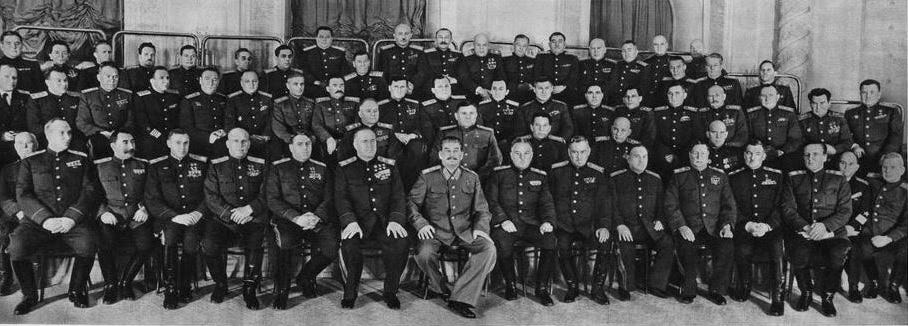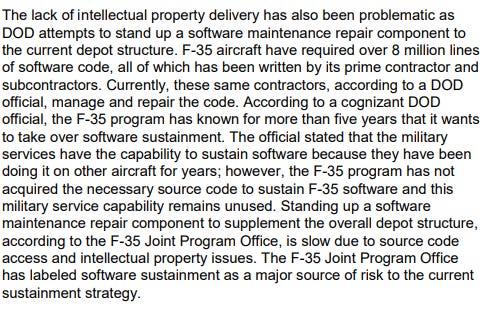This conjunction of an immense military establishment and a large arms industry is new in the American experience. . . .Yet we must not fail to comprehend its grave implications. . . . In the councils of government, we must guard against the acquisition of unwarranted influence, whether sought or unsought, by the military-industrial complex. The potential for the disastrous rise of misplaced power exists and will persist. -Dwight D. Eisenhower, 1961
After the end of the second world war an inevitable march began in the arms industry towards consolidation. In order to counteract the natural tendency of the rate of profit to decline in capitalism, the later stages of the system demand endless growth. This can be done either through overproduction, as has become common in the commercial world, or through endless consolidation, which is what you see in the more capital intensive businesses like defense and heavy industry.

Slowly but surely, the weapons manufacturers gobbled up their smaller competitors, and used their ever-increasing influence to elbow their way into political power. When dozens of companies were competing for the attention of senators and representatives, it was harder for any one to dominate. Now, companies like Lockheed and Raytheon can essentially buy congress for themselves. Instead of the state dictating terms to the arms dealers, the situation has been reversed. Their control of congress means that the arms dealers decide policy based off profits, rather than the greater good of society. This is not a partisan issue. The arms dealers own both houses and both parties, so no matter who wins the election, the great wheels of the war machine continue to turn, processing the blood and suffering of the world into more profits for the ruling class.

As Clausewitz reminded us, war and politics are not separate entities. War is nothing more than the continuation of politics, and so if the arms dealers have control of politics, this means they also have control of war. They are the ones who decide when, where, and how we fight. This has created a disaster in NATO’s doctrine, and left the alliance with an incentive to drag wars on, thereby increasing profits, rather than fighting for a decisive and quick end. A long war means more opportunity for arms sales, while a quick one means that the goal of infinite growth cannot be met.
During the Second World War we saw the sort of integrated military-political-economic system which is necessary to fight and win a war. In the Soviet Union, this was called the STAVKA, a consolidation of power into one central committee which had control of both the army and the economy. Both generals and economists sat on the STAVKA, and made collective decisions for the goal of winning the war as quickly as possible.

This means that the two sectors of society could serve each other rather than being in an eternal conflict. The result was a system which could totally rebuilt the Red Army after the disasters of 1941 nearly wiped it out and create a fighting force which was able to take the war to the Nazis on their own terms and win.
The same type of system was seen in the United States, with war production boards able to dictate terms to arms contractors and exact a heavy price for failure. One of the primary reasons this was possible is that the US Government owned the designs of all the weapons it used. This means if a contractor failed to meet their requirements, they could simply license the design out to another one.
Now, the US cannot even maintain it’s own aircraft because they are so full of proprietary parts and “intellectual property” from Lockheed, which the contractor will not allow the government to access. This has created massive maintenance shortfalls, with the US military entirely at the mercy of a contractor which has an economic incentive to delay low margin maintenance work as long as possible. The trillion dollar Wunderwaffe are rotting away in their hangars for lack of maintenance, and the situation has gotten so bad that even the USAF now admits the F-35 is a failure.
The system which Eisenhower warned us about, and the one which he helped create, has done everything he prophesized. We now have a military which exists not to win, but to funnel endless profits into the hands of a few contractors who use their almost infinite windfalls to buy more power. The system has become self-sustaining, but it doesn’t have to be this way.
Keep reading with a 7-day free trial
Subscribe to DD Geopolitics to keep reading this post and get 7 days of free access to the full post archives.




